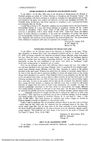The Role of Anemia and Vitamin D Levels in Acute and Chronic Telogen Effluvium
January 2011
in “
Turkish Journal of Medical Sciences
”

TLDR Low iron levels are a significant risk factor for hair loss, while high vitamin D levels might be a response to hair loss, not a cause.
The 2011 study involving 63 female patients with telogen effluvium (TE) and 50 control subjects found that iron deficiency anemia, characterized by low hemoglobin and ferritin levels, was a significant risk factor for TE. The TE group had significantly lower levels of these iron markers compared to the control group. However, the study also found that patients with TE had unexpectedly higher levels of 25-hydroxyvitamin D3, which the researchers speculated might be due to increased UV exposure from hair loss rather than a direct cause of TE. The role of vitamin D in TE remains unclear, and the study suggests that the elevated vitamin D levels could be a response to the condition rather than a contributing factor. No significant differences were noted in serum zinc levels or correlations with other tested parameters.













